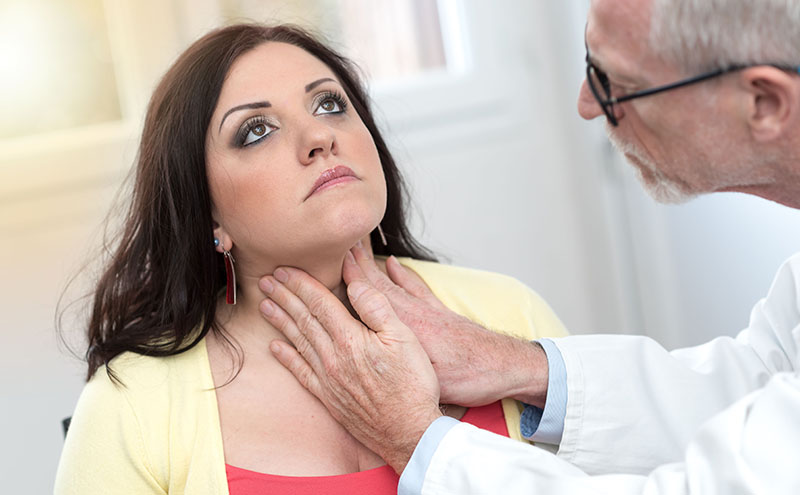
 What is the thyroid gland?
What is the thyroid gland?
The thyroid gland is a butterfly-shaped gland located in the lower neck just below the Adam’s apple. It secretes thyroid hormones that regulates metabolism.
What causes thyroid cancer?
Thyroid cancer is caused by genetic mutations that cause an abnormal and rapid growth of thyroid cells. You may be at an increased risk of thyroid cancer if you say yes to one or more of the following:
- Family history of thyroid cancer, or other familial syndromes such as multiple endocrine neoplasia (MEN) syndromes or familial adenomatous polyposis (FAP).
- Prior exposure to high doses of radiation, such as living near a nuclear reactor, x-ray treatment of acne or infections in the 1940-1960s.
- Female gender, thyroid cancer is three times more common in women than men.
- Age, thyroid cancer can occur at any age, the risk is higher in women over 40 and men over 60.
How common is thyroid cancer?
The American Cancer Society’s most recent estimates for thyroid cancer is the United States for 2018 are about 53,990 new cases (40,900 in women and 13,090 in men).
What are the symptoms of thyroid cancer?
Thyroid cancer presents as a nodule or lump in the thyroid on neck examination by your doctor. Usually, it does not cause any symptoms. It is quite common to discover a thyroid nodule incidentally on a CT scan, MRI or ultrasound done for unrelated reasons. On occasion, a neck lump may be visible while looking in the mirror or may be brought to attention by family or friends. A larger nodule may cause discomfort in the neck, difficulty swallowing, hoarseness of voice and even difficulty breathing.
Unfortunately, blood tests do not help in detection of thyroid cancer. Common thyroid blood tests such as a TSH (Thyroid stimulating hormone) may be completely normal in thyroid cancer.
When to get a neck check?
If you have any of the above risk factors or symptoms, please see your doctor. The best way to find a thyroid nodule is by ensuring that your doctor examines your neck. If there is a concern for a thyroid nodule, you will likely get a thyroid ultrasound and see an endocrinologist, who specializes in thyroid disorders.
 By: Bhavana Bajracharya, MD
By: Bhavana Bajracharya, MD
Dr. Bajarcharya is a physician at Valley’s Diabetes, Thyroid, & Endocrinology Clinic.

